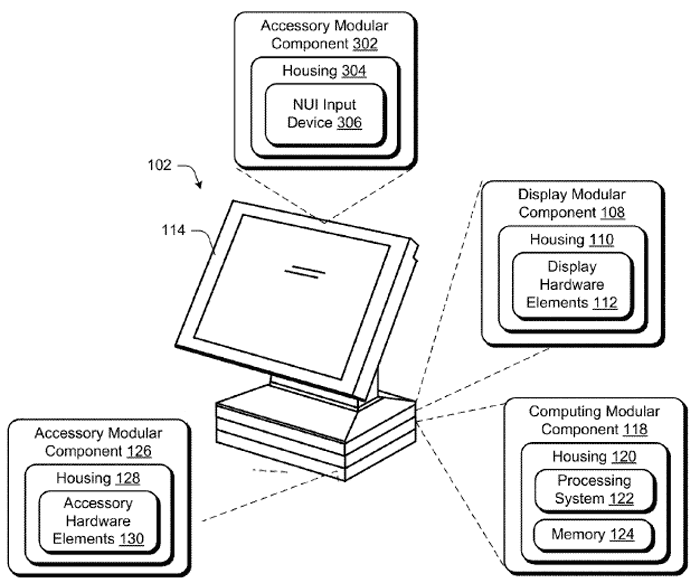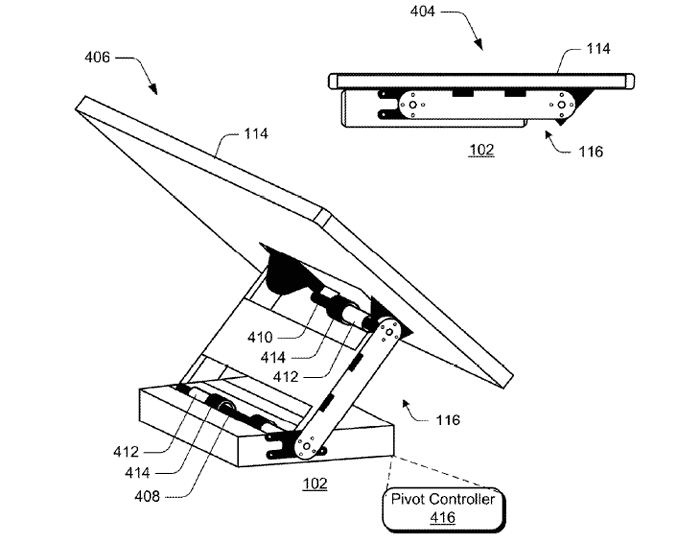Microsoft patents concerning a modular PC design were published by the USPTO late last week. Originally filed by Microsoft last summer, the patent sketches show what could be described as a 'Surface PC AiO' which accepts to provide stackable, magnetic component upgrades. The system would allow users to swap and change components as they wish; to boost the capabilities/capacity/performance of the computer. The system would be appealing and accessible to the masses due to the easy to understand concept, overall simplicity, and benefits it could bring.

As VentureBeat reports, one of the patent's authors is Tim Escolin, a senior industrial designer on Microsoft's Surface devices and accessories team. This Surface AiO PC would build on the PC's strengths of upgradeability and bring a 'LEGO' like slickness to the table. It's almost like a Project Ara for PCs. Swappable components include the screen, removable battery, processor, graphics card, memory, storage, speakers, and networking/wireless components.
It was also noted by VentureBeat that Microsoft helped Razer promote the Project Christine modular PC a couple of years ago. The last report about Project Christine said it was difficult to progress with the idea due to lack of OEM support. Surely Microsoft's size and previous success with hardware - like the Surface range and Xbox would either help gain support or Microsoft could offer a basic set of modular choices using its own engineering and design resources.

Simple modular building block PCs have also been recently showcased by Acer, with the Revo Build stackable 'NUC' PC (scroll to bottom of linked article), and to a lesser extent (storage only), with the ASUS VivoMini VC65 machines.













